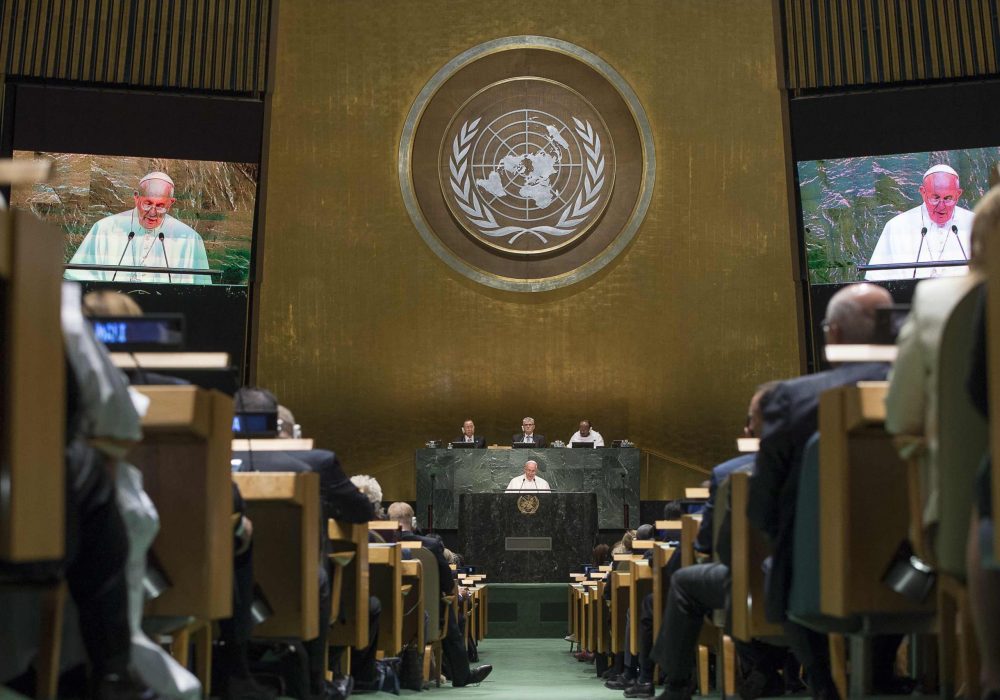Free and open to the public. This event is co-presented with America Media, the Kellogg Institute for International Studies, and the Permanent Observer Mission of the Holy See to the United Nations, and is co-sponsored by the Beatrice Institute, the Collegium Institute, the Harvard Catholic Forum, the Institute for Faith and Culture, the Institute for Human Ecology, the Nova Forum for Catholic Thought, and the St. Paul Catholic Center. This event will be held on Zoom (registration required) and live-streamed to YouTube.
Historically, the Bishop of Rome and the diplomats representing the Holy See have played important roles in international affairs involving Empires and Kingdoms, sometimes in making war, sometimes negotiating marriages and alliances, ideally in making peace. With the loss of the Papal States in 1870 and the creation of, first, the League of Nations, and later, the United Nations, the Holy See has continued to play an important—and sometimes contested—role. Of course, lay Catholics played an important role in founding the UN—as they did for the EU and in writing the Universal Declaration of Human Rights. This panel discussion explores the history of the Holy See’s relations with the United Nations, the role of lay Catholics and Church leaders in developing the human rights tradition, and the growing role of Catholic NGOs as they work alongside the UN for justice, peace, religious freedom, and integral human development around the world. Moderated by Paolo Carozza (Notre Dame), this panel features the participation of Archbishop Gabriele Caccia, Permanent Observer of the Holy See to the United Nations; Joseph Donnelly, Delegate of Caritas Internationalis to the UN; and Mary Ann Glendon, former US ambassador to the Holy See and expert in human rights.

